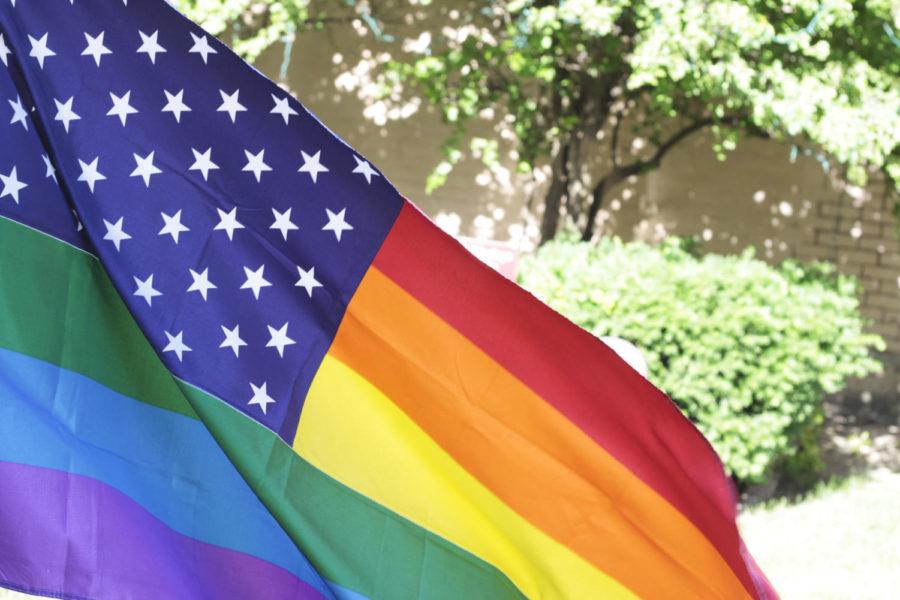Editorial: Supreme Court ruling on adoption: a step forward for civil rights
The rainbow flag was flown in honor of the LGBT movement as the Defense of Marriage Act was overturned June 26, 2013, after the Supreme Court declared that it was unconstitutional.
March 8, 2016
In a unanimous ruling, the U.S. Supreme Court decided Monday that a lesbian adoptive mother had parental rights to her three children after splitting with her partner, the biological mother. To do this this, the Supreme Court overturned an Alabama ruling that did not recognize the adoption of the children, which took place in Georgia.
The adoptive mother and the biological mother were together as a couple for 16 years, according to an article from NPR. The adoptive mother adopted their children in Georgia with her partner’s consent before the family moved to Alabama.
The couple then split and the biological mother no longer allowed her ex-partner to see the children. Lower courts in Alabama ordered shared custody but the state supreme court overturned the ruling, saying Georgia should not have recognized the adoption, according to the article, before the case came before the U.S. Supreme Court.
To rule in the adoptive mother’s favor, the U.S. Supreme Court said the Alabama court violated a clause in the Constitution that mandates each state gives “full faith and credit” to other states’ judicial proceedings, according to the article. This Supreme Court ruling follows on the heels of the court’s ruling in June that ensured all states recognize same-sex marriages.
While this case seems to focus on states’ relationships to one another, it is another major step forward for civil rights in our country, especially for the thousands of same-sex couple with adopted children.
The National Center for Lesbian Rights’ family law director, Cathy Sakimura, told USA Today that the ruling will have a major impact for gay and lesbian adoptive parents who travel or move to Alabama. The article also said the ruling could affect other states like Alabama that challenge adoptions by same-sex couples.
“No adoptive parent or child should have to face the uncertainty and loss of being separated years after their adoption just because another state’s court disagrees with the law that was applied in their adoption,” Sakimura said.
And this ruling would affect a significant number of U.S. citizens. More than 16,000 same-sex couples are raising about 22,000 adoptive children in the United States. Additionally, 2 million members of the LGBT+ community are interested in adopting children, according to Lifelong Adoptions, an organization devoted to help people adopt.
Any legislation or court ruling that makes the lives of those in the LGBTQ+ more equal to those who are not, is an achievement in civil rights — especially because this court ruling could affect thousands of adoptive parents and millions hoping to become adoptive parents.

















